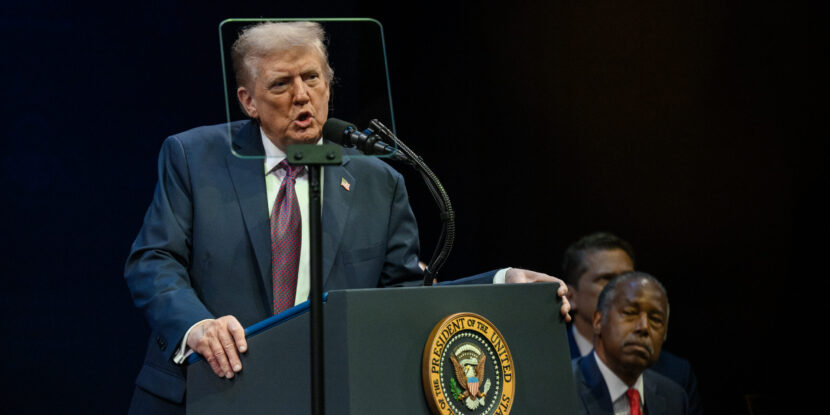❓WHAT HAPPENED: The Trump administration has ramped up deportations of illegal immigrants, including leveraging agreements with third-party countries like Eswatini (Swaziland) to bypass legal hurdles.
👤WHO WAS INVOLVED: President Donald J. Trump’s administration, Simon Hankinson of the Heritage Foundation, and illegal immigrants like Kilmar Abrego Garcia.
📍WHEN & WHERE: Ongoing deportation efforts under the Trump administration, with countries like Eswatini, Rwanda, and Panama involved in third-party agreements.
💬KEY QUOTE: “If an alien has a veto on being sent home, then it’s a one-way street. It’s just a ratchet and never goes back down again.” – Simon Hankinson
🎯IMPACT: The agreements help the U.S. maintain national security by ensuring deportations proceed even when home-country returns are blocked.
As the Trump administration continues its efforts to curb illegal immigration, the use of third-party countries like Eswatini, commonly known as Swaziland, has become a key strategy in deportation cases. These agreements allow the U.S. to send deportees to nations other than their home country, addressing claims of torture or harm.
Simon Hankinson, a senior research fellow at the Heritage Foundation, highlighted the importance of these agreements in a recent media appearance, stating, “Our law allows us, if we can’t send someone back to their home country, we can send them back to a country in which they resided for some time, or in which they have gotten protection before or in a pinch to another country that will accept them and will not torture them or otherwise abuse them.”
One high-profile case involves Kilmar Abrego Garcia, an alleged MS-13 gang member from El Salvador, who has delayed deportation by claiming fear of persecution in over 22 countries. Recently, the Department of Homeland Security (DHS) notified his legal team that he would be deported to Eswatini, a small African kingdom.
Hankinson emphasized that these third-party country agreements are vital to national security, as they prevent illegal immigrants from having a “veto” on their deportation. “There are a lot of people who were let in under the Biden administration, thousands of people, who have criminal records back home that we know nothing about, and they’re sooner or later going to victimize American citizens,” he said.
While the numbers sent to third-party countries are relatively small for now, Hankinson believes these operations can expand significantly. “I would think that the Trump administration would want to have as many of these deals as possible,” he said, stressing that such agreements ensure deportations proceed despite legal challenges.
Join Pulse+ to comment below, and receive exclusive e-mail analyses.



















